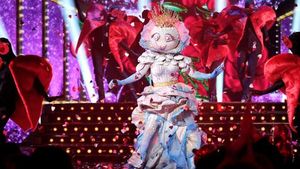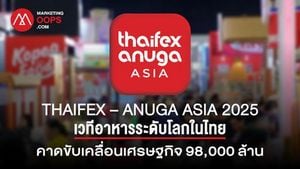The race for the 2025 South Korean presidential election is heating up, with candidates making their positions clear on various pivotal issues, including economic recovery, national security, and social cohesion. The election, slated for early 2025, presents opportunity for both established politicians and new contenders to connect with the public and share their visions for the country.
Having previously served as the Prime Minister, Lee Nak-yon is positioning himself as a candidate focused on reconciliation and unity, stressing the importance of healing the divides prevalent within South Korean society. According to reports from Korea Times, Lee has been actively engaging with diverse community groups, seeking to understand their needs and aspirations. His platform advocates for elevational reforms across government sectors, aiming for transparent practices and increased social welfare.
Meanwhile, former Seoul Mayor Oh Se-hoon is vying for the presidency with strong stances on national security and economic stability. He argues both issues are interlinked, asserting, "A secure nation fosters economic growth, and I will prioritize investments to establish South Korea as both stable and prosperous". His extensive experience governing Seoul positions him as knowledgeable about urban development and crisis management.
The political atmosphere is also influenced by the realms of popular media, with discussions surrounding celebrity endorsements becoming more prevalent. The celebrity factor, seen as capable of swaying public sentiment, is particularly relevant as both Lee and Oh have made strategic appearances on popular television shows to connect with younger voters, who are often less engaged with traditional political discourse.
Adding to the dynamics is the rising visibility of candidates from outside of traditional power structures, such as Ahn Cheol-soo of the People's Party, who has garnered attention for his innovative proposals related to technology and environmental sustainability. Ahn emphasizes, "The future of South Korea hinges on how we invest today, not only economically but also socially and environmentally." His youthful energy and focus on progressive issues resonate with segments of the electorate seeking change.
Polling data indicates fluctuations among key demographics, with younger voters showing increased support for candidates advocating progressive policies. Experts have noted how the youth engagement may redefine traditional voting patterns. According to Analytics Korea, there has been significant interest among those aged 18 to 34 years, with more than half indicating they will participate actively in the upcoming election, markedly higher than previous elections.
Infrastructure and economic recovery remain at the forefront of public discussion. With the COVID-19 pandemic exacerbated socioeconomic issues, many candidates are formulating policies aimed at rebuilding South Korea’s economy. These proposed strategies include stimulus packages promoting small businesses and increased investment from technology firms. The Korea Economic Institute highlights these measures as pivotal for recovery and future growth.
Diving deep, newspapers and media outlets are paying close attention to the alliances formed by candidates, with party dynamics heavily influencing campaign strategies. The Democratic Party of Korea and the People Power Party continue to dominate the political scene, yet the emergence of independent and third-party candidates could reshape the framework of this election. Observers suggest this evolution reflects copious public dissatisfaction with stagnation and unresolved issues from preceding administrations.
Within this framework, the role of social media also cannot be overlooked. With platforms like Twitter and Instagram being primary sources of information for many voters, candidates are focusing heavily on their online presence. Effective online strategies and engagement aim to attract younger voters. Candidates are leveraging targeted messaging and grassroots activism through social channels—pushing specific narratives about their visions for the future.
Analysts, such as those from The Diplomat, observe potential pitfalls for candidates who fail to navigate this digital environment adeptly or who struggle to connect with the electorate's concerns directly. Unlike prior elections, strategy is not simply about traditional methods; it now requires mastery of digital interfaces and rapid response to changing public sentiments.
Going forward, candidates have begun to tailor their messages, balancing the necessity of addressing existential challenges, such as North Korea’s provocations and economic inequities. International relations, particularly with the United States and China, are also hot topics, with candidates delineaging contrasting approaches to these complex global dynamics. Each candidate's stance on foreign policy will inevitably influence public opinion.
For voters, the strategies devised by each candidate will determine their alignment with broader national priorities. Whether focusing on health care, education reform, or climate change, the political discourse promises to remain vibrant and contentious. The challenge for candidates will be not just to articulate their visions but to listen to the electorate—ensuring their messages not only resonate but also inspire confidence.
With the pivotal election on the horizon, South Korea stands at the crossroads of renewal and reflection, as its dynastic party politics confront pressing demands from the electorate. The stakes couldn't be higher, as civic engagement is set to define the future of the nation.



